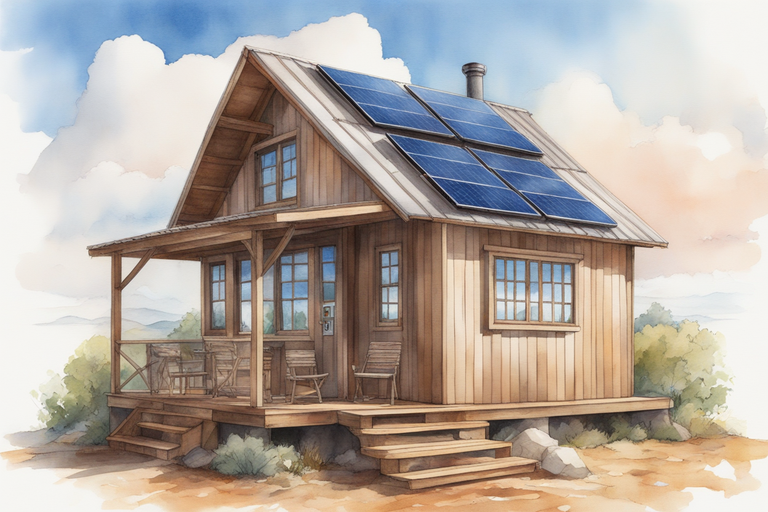 In a world dominated by technology and constant connectivity, the idea of living off the grid might sound like a radical departure from the norm. However, there’s a growing movement of individuals and families who are choosing to embrace a simpler, more self-sufficient lifestyle by disconnecting from the traditional grid. In this blog post, we’ll explore the compelling reasons why you should consider living off the grid.
In a world dominated by technology and constant connectivity, the idea of living off the grid might sound like a radical departure from the norm. However, there’s a growing movement of individuals and families who are choosing to embrace a simpler, more self-sufficient lifestyle by disconnecting from the traditional grid. In this blog post, we’ll explore the compelling reasons why you should consider living off the grid.
1. Environmental Stewardship:
Living off the grid is a powerful way to reduce your ecological footprint. By generating your own power through renewable sources like solar panels or wind turbines, you can significantly decrease your reliance on fossil fuels. This sustainable approach contributes to a healthier planet, promoting environmental stewardship and fostering a greater appreciation for the natural world.
2. Energy Independence:
One of the primary benefits of off-grid living is the freedom it provides from the vulnerabilities of centralized power systems. Dependence on traditional power grids can leave individuals susceptible to outages, price fluctuations, and geopolitical factors. By harnessing your own energy, you gain independence and security, ensuring a consistent power supply even in the face of external uncertainties.
3. Financial Freedom:
Living off the grid can also be a financially liberating choice. While the initial investment in renewable energy systems and off-grid infrastructure may seem significant, the long-term savings can be substantial. Once your system is in place, you’ll enjoy reduced or even eliminated utility bills, allowing you to allocate your resources to other aspects of your life, such as education, travel, or pursuing your passions.
4. Connection to Nature:
The hustle and bustle of modern life often lead to a disconnection from the natural world. Off-grid living encourages a return to a more harmonious relationship with nature. With fewer distractions and a focus on sustainable practices, you’ll find time to appreciate the changing seasons, starlit nights, and the simple joys of a life lived closer to the Earth.
5. Self-Sufficiency and Resilience:
Off-grid living fosters a sense of self-sufficiency and resilience. By growing your own food, sourcing your water, and producing your energy, you become less reliant on external systems. This newfound independence not only empowers individuals but also prepares them to face unforeseen challenges, whether they be economic downturns, natural disasters, or other disruptions.
6. Minimalist Living:
The off-grid lifestyle naturally lends itself to minimalism. With limited space and resources, individuals often find that they prioritize what truly matters. This shift towards a more intentional and minimalist existence can lead to increased happiness and fulfillment, as possessions take a back seat to experiences and meaningful connections.
Conclusion:
Living off the grid is a conscious choice that goes beyond simply disconnecting from mainstream society. It’s a commitment to sustainability, independence, and a deeper connection with the environment. While it may not be the right choice for everyone, those who embrace off-grid living often find themselves on a transformative journey towards a more fulfilling and purposeful life. So, are you ready to unplug, embrace simplicity, and embark on the adventure of off-grid living?